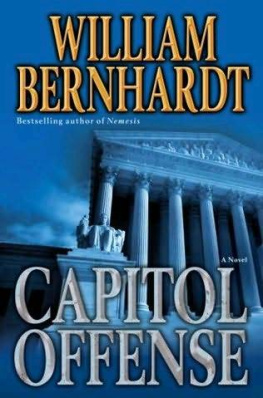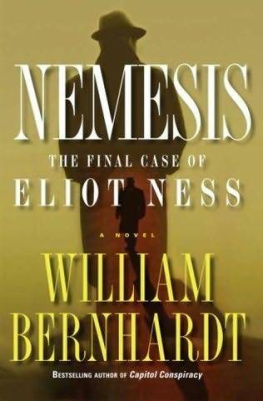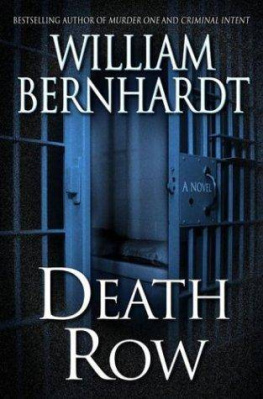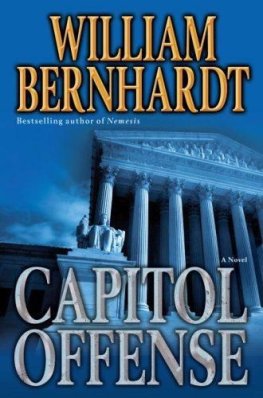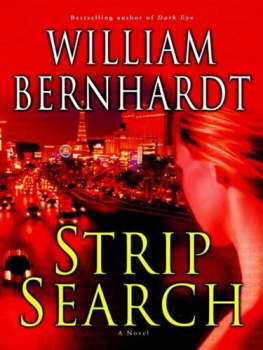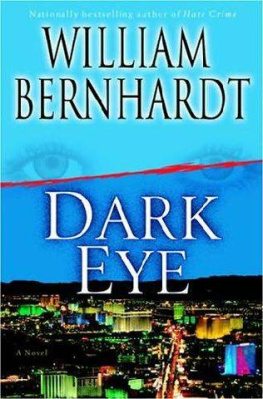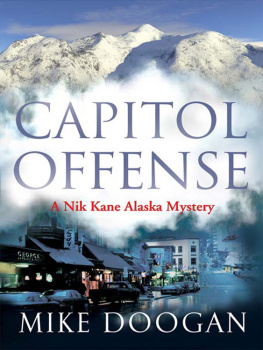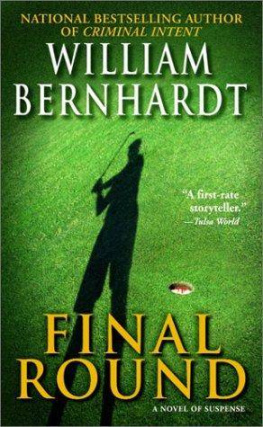Annotation
In his thrilling novels of suspense, William Bernhardt takes us into the fault lines of the criminal justice system, where one mistake, a twist of fate, or an explosive secret can mean the difference between justice and its cataclysmic undoing. In Capital Offense, attorney Ben Kincaid stands amid the chaos of a violent collision between vengeance and death-and it's up to him to discover where the truth lies.
Professor Dennis Thomas arrives at the law office of Ben Kincaid with a bizarre request: Thomas wants to know if Kincaid can help him beat a murder charge-of a killing yet to happen. The professor's intended victim: a Tulsa cop who had refused to authorize a search for Thomas's missing wife. For seven days, Joslyn Thomas had lain in the twisted wreckage of her car, dying a horrifically slow death in an isolated ravine. Now, insane with grief, Thomas wants to kill Detective Christopher Sentz. Kincaid warns him not to, but that very same day someone fires seven bullets into the police officer.
Suddenly Kincaid's conversation with Thomas is privileged and Thomas is begging Kincaid to defend him. Thomas claims he didn't shoot Sentz-even though he'd wanted to. Something about the bookish, addled Dennis Thomas tugs on Kincaid's conscience, and against all advice, he decides to represent this troubled man in the center of a media and political firestorm.
But the trial doesn't go Kincaid's way, and a verdict of capital murder is bearing down on Dennis Thomas. That's when Kincaid's personal private detective, Loving, starts prying loose pieces of a shocking secret. Working in the shadows of the law, using every trick that works, Loving risks his life to construct an entirely new narrative about Detective Sentz, Joslyn Thomas, and madness in another guise: the kind that every citizen should fear, and no one will recognize-until it is too late.
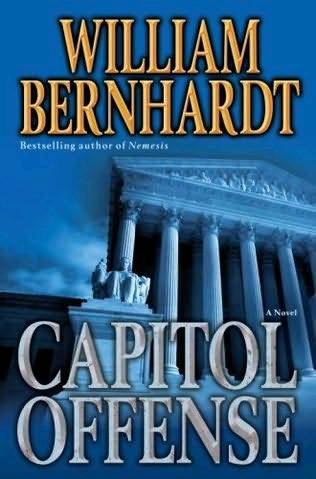
William Bernhardt
Capitol Offense
Book 17 in the Ben Kincaid series, 2009
For Marcia
my grand passion
The distance between insanity and genius
is measured only by success.
- BRUCE FIERSTEIN
Prologue
1
I died three days ago.
I never saw it coming. It had been a difficult day at the hospital, shocking even-but when was it ever different? St. Benedict's is one complication after another, especially in my line of work. There are too many patients, too many bureaucrats, and too few happy endings. Midday, I took a long stroll through the children's ward just to hear the high-pitched voices raised in song or play. Even when there is great pain, the young always seem capable of mustering optimism and innocence, two qualities I see too infrequently.
"Dr. Thomas, you're pretty."
"Thank you, Jonathan."
"My dad thinks you're pretty, too."
"I'm flattered." And I was, genuinely. Compliments are sparse in my line of work.
"When I get better, do you think you could come over for dinner? Not for me. But I think my dad gets lonesome sometimes..."
"I'm married, Jonathan."
"Oh..."
"But I'd still love to have dinner with you sometime."
With innocence can also travel disappointment, but here at the hospital, time travels like quicksilver and long-term consequences are overwhelmed by the need for emotional satisfaction in the here and now. I was so accustomed to thinking of my patients' immediate happiness, I never realized how quickly my own happiness could be curtailed.
This was not a day like any other. What I saw in the hot lab disturbed me, perhaps more than I was willing to admit to myself. I didn't know how to respond. I did not perceive it as a tolling of the bell, as a sign that the End of Days was upon me. I climbed into my Land Rover and headed for home. The drive to Skiatook is almost forty minutes even if I don't get caught in a traffic snag, and the drive down Lombard Lane is always dark. Too many curvy country roads with little traffic and no witnesses. Deep ravines on either side. Not the place to be driving after a long hard day's work in the healing arts. A girl had to be careful.
All I saw was a flash of light and suddenly I lost control of the Rover. Heat, squealing tires, heart racing, eyes searching desperately for the road. The impact was sudden, shattering. The wheel wrenched out of my grasp, sending slivers of pain racing up my right arm. My Rover lurched off the road into a ravine, fell for what seemed an eternity, and crashed. Did I hit a tree? A house? I still don't know. I only know it hurt. I blacked out. Not from the impact, though that was fantastic, unlike anything I had experienced in my life. I blacked out from the pain. And then I died.
I awoke many hours later, unsure of anything. Where was I? What had happened? I had no answers. Answers are for the living, not the dead. I tried to make an inventory of everything I knew, everything about which I could be certain. I could not move. Not an inch. Not so much as to scratch my nose. I was in excruciating agony-I would describe it as unbearable, except that I did bear it, I had to, I had no choice. I still have no choice.
There's something sharp and metallic piercing my left leg! Please, God, is there no mercy? I've helped so many others cope with their pain, can no one help me? It's bleeding and infected and I can't move and I can't even see and I just want this torture to be over. I don't care how. It hurts so badly. Oh, God, it hurts, it hurts!
I catch my breath, inhale deeply, murmur my mantra, and try to block the agony out of my mind. No help has come. I have no reasonable expectation of rescue. Dennis and I chose to build out in the far reaches of Skiatook for a reason. We were on a spiritual journey, trying to nourish our souls and find a better way of life. We sought seclusion, the peace that comes from knowing that you have removed yourself from the bustle and impurity of the city. What I never realized was that we had traded one form of danger for another. No one would come out here, no one but my husband. He will never see me, and no one else will have any cause to come this way. I am off the navigational charts of the rest of humanity, dead to the world.
The accident was three days ago. Since then, I have remained trapped here, mired in my own blood and waste, scared and angry and filled with a bitter pain that blackens my tongue and my thoughts and makes every breath an ordeal. As a physician, I am all too able to assess my hopeless situation-and all too unable to do anything about it. For days, I ran the standard ER checklist through my head. Check for concussion. Rather difficult to do when you're pinned down like a butterfly in a collector's tray. What's my white blood cell count? Who knows? Multiple lacerations, severe abrasions, internal bleeding-did this mean anything? They were just words, they had nothing to do with my body, with the life essence I could feel seeping away from me.
This much I know: My clavicle is broken in two places. At least two of my ribs, also. My shoulder is dislocated and something traumatic has happened to my left leg. I not only can't move it-I can't feel it any longer. That leg is gone; no science known to man could bring it back to me. I feel an aching in my gut that the scientist within recognizes as kidney failure, the sure product of dehydration. How long has it been since there was anything in my mouth other than the taste of my own blood? Too long. Far too long.
It was almost a year ago that I first expressed my unhappiness to Dennis, not with him, not even with our life, but with myself. I had once considered myself a spiritual person, but that spiritual side had been lost somewhere in the shuffle of quotidian duty, the drudgery of medical school, the internal ravaging that comes from watching so many people die, day after day. That was when I started attending the Shambhala retreat, where they taught me about meditation, hypnotherapy, Buddhism. Not a religion, they told me. A way of life. A way of incorporating harmony and balance and peace into your own soul. Initially, I wasn't very good at it. What was the point of all the breathing and humming? Did it matter how I held my hands?


